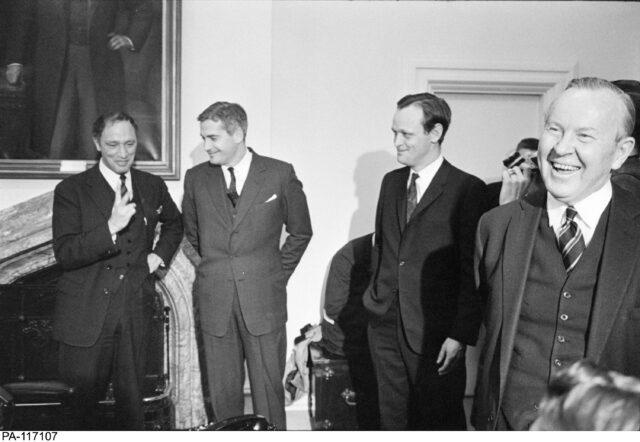Notes from a lunch with Lester Pearson, two months before his death 50 years ago

In October 1972, my friend Dick O’Hagan invited me to a small lunch at the U of T faculty club with former prime minister Lester Pearson. Accompanied by Maryon Pearson, he was in his usual good spirits that day, although much frailer than I remembered him in the late 1960s in Ottawa. Little did we know that he would die two months later, at 75, on December 27.
From notes I recently uncovered in a small pocket notebook, Pearson was clearly in a reflective mood about the shifting sands of fate. Had Mackenzie King remained in power, Pearson probably would have stayed on at External Affairs as under-secretary of state, instead of plunging into active politics under Prime Minister Louis St. Laurent — where he believed that he could play “a more active part” than as a civil servant.
He admitted to disagreements with King’s policies, most notably his isolationist position in refusing to support military intervention or sanctions against Benito Mussolini when the Italian fascist invaded Ethiopia in 1935. King ignored pleas from Emperor Haile Selassie for help. As a then-junior External official, Pearson acknowledged, to have resigned in protest would have been “extremely unrealistic.”
The bitter contest over the years with Conservative leader John Diefenbaker still rankled. He drew a sharp contrast between himself and the Tory firebrand. “He planned to be a prime minister even at an early age. I never had a goal except the next opportunity ahead.” At this point, Maryon interjected: “You’re hardly an opportunist.” Pearson went on: “If I were in touch with Mr. King, I’d say I was in touch with spirits up there guiding me. If I hadn’t written the External exams, I would probably have been an assistant professor of history and director of athletics. I don’t know who arranged that — maybe Mr. King.”
His most enjoyable time was serving at Canada House in London. Being Canada’s representative at the United Nations was the most satisfying. As Liberal leader, third reading of the Maple Leaf flag bill was the high point.

He did not dwell on the minutiae of his tumultuous years in power: the failure to win majority government in 1963 and 1965, the scandal-plague years when cabinet ministers exited in a revolving door of accusations and slurs, the constant leaks of government plans — including his vow to fire the next minister who fed juicy material to a reporter. For all that, there was an outstanding record of accomplishment through four years of minority Parliaments: medicare, the national pension plan, official bilingualism, immigration reform and the flag.
Pearson admitted that governing was a challenge. “There is a lot of diplomacy behind the scenes to keep you in power.” As a “prejudiced witness” he would not recommend minority government, although “you can make a case for it” because of the self-imposed discipline that does not always exist with a majority.
My notes end with Pearson’s jocular reference to a diary he kept in 1915 as a sophomore at Victoria College. By March, with exams approaching: “Must do more studying…worked hard today. Good.” The last three items: ” ‘Bummed around. Bummed around. Enlisted.’ That was the end of the first diary.”



0 Comments